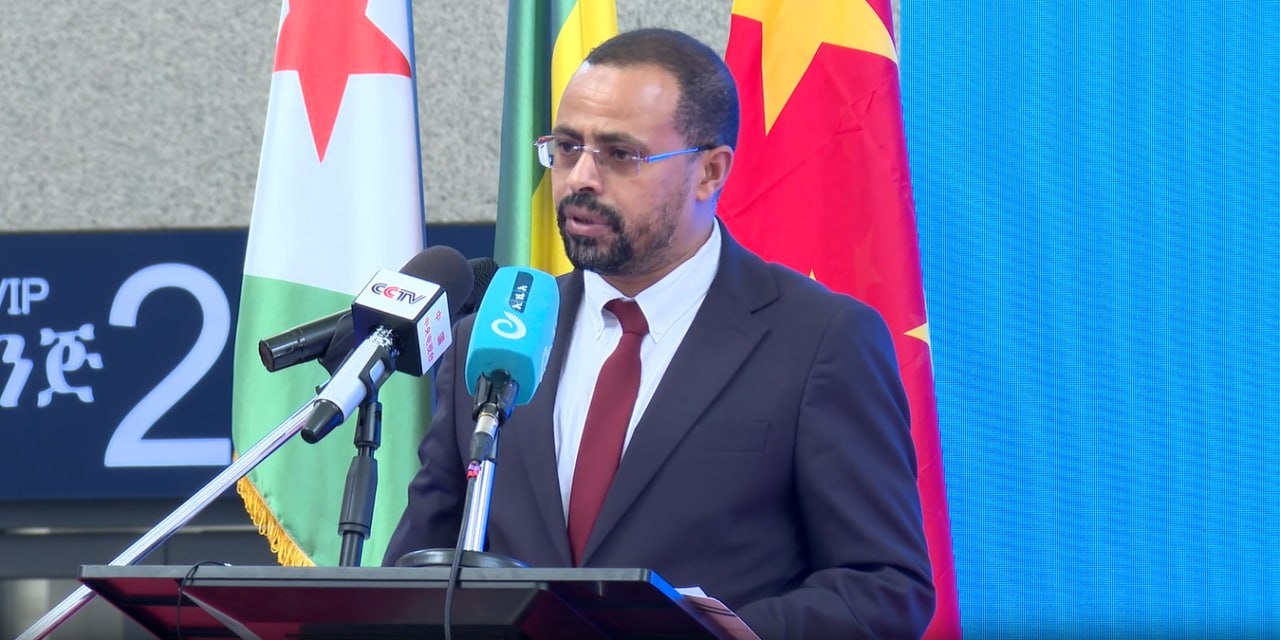Ethiopia, Djibouti Take Over Management of Ethio-Djibouti Railway From Chinese Company - ENA English
Ethiopia, Djibouti Take Over Management of Ethio-Djibouti Railway From Chinese Company

Addis Ababa, May 10/2024(ENA) The Chinese Railway Construction Corporation (CRCC) has officially transferred the management responsibility of Ethio-Djibouti Railway to the governments of Ethiopia and Djibouti at a ceremony held today in Addis Ababa.
CRCC was undertaking the management of Ethio-Djibouti Railways in collaboration with the governments of Ethiopia and Djibouti over the past six years within the framework of the Chinese Belt and Road Initiative.
The Belt and Road Initiative is a global infrastructure development strategy adopted by the Chinese government in 2013 to connect Asia with Africa and Europe via land and maritime networks with the aim of improving regional integration, increasing trade and stimulating economic growth.
Ethio-Djibouti railway is one of the several development projects of the initiative which was put into operation on January 2018.
With a total length of more than 750 kilometers, the railway that starts from Addis Ababa, the capital of Ethiopia in the west, and ends in the port of Djibouti in the east, is the first electrified railway project in Africa.
Executive Director of the Ethio-Djibouti Railway, Abdi Zanbadi has today received the keys of the Ethio-Djibouti train from the Director General of the CRCC office , marking the start of the joint Ethio-Djibouti railway management.
The event was attended by a large number of government officials from Ethiopia, Djibouti, and China, including the Speaker of Ethiopian House of Peoples’ Representative Tagesse Chafo.
On the occasion, the Minister of Transport, Infrastructure and Equipment of Djibouti, Hassan Hamad pledged to further continue the development partnership with Ethiopia.
“Today we celebrate the formal transfer of this responsibility to our governments... By taking over the management of this railway network, our governments are committed to contributing to the path of excellence and innovation."
He assured that this infrastructure continues to serve our common interests, promote sustainable development and strengthen our strategic partnership.
Emphasizing the importance of railways in the economic field and regional integration of the two countries and the region, the minister indicated that "this railway is a symbol of cooperation and progress and an engine for our economic development and regional integration.”
For his part, the Executive Director of the Ethio-Djibouti Railway, Abdi Zenabi, called for more partnerships in establishing other railways in the region.
“As we celebrate today, let us cast our eyes toward the future. Let us imagine a network of railways crossing our region, connecting us not only physically, but also culturally and socially.”
Abdi stressed the important role played by the project in the field of transportation. “The Ethiopian-Djibouti Railway is more than just tracks and locomotives. It is a symbol of cooperation, friendship and shared aspirations."
Designed with precision and dedication, it extends over a distance of more than 750 kilometers, connecting the Ethiopian hinterland to Djibouti City. "This strategic coastal railway has transformed the way goods move between our two countries, reducing transit times and enhancing trade opportunities,” the executive director elaborated.
He enumerated the benefits gained from operating the railway in the region, “It has opened new markets, attracted investments, and created job opportunities for our people. The efficient transportation of goods - whether agricultural products, manufactured goods or minerals - has revitalized our economies.”
The Executive Director General of CRCC office, Peng Danyang highlighted the pioneering role of the railway for strengthening regional development.
“The Ethio-Djibouti railway leads regional development. Since commercial operations in 2018, the railway has operated 2,500 passenger trains with a passenger volume of 68,000.”
Over the past six years, the average annual rate of increase in transportation has reached 39 percent, he added.
The company has played role in training experts and professionals to assume responsibility for local self-management. “Over the past six years of operation, a total of 2,840 people have been trained and certified, which has led to the localization of all railway professions in the field of rolling stock operation, maintenance and safety".